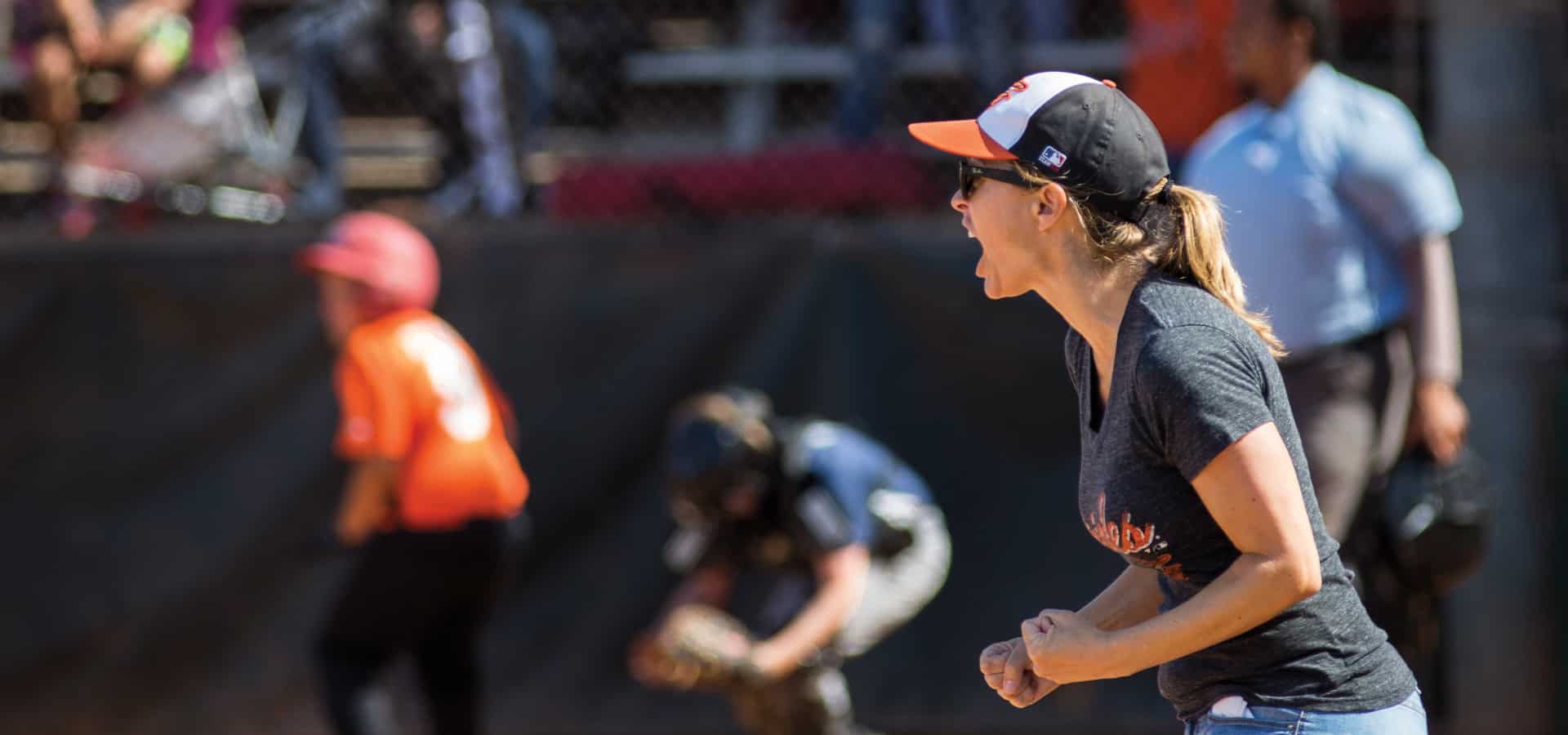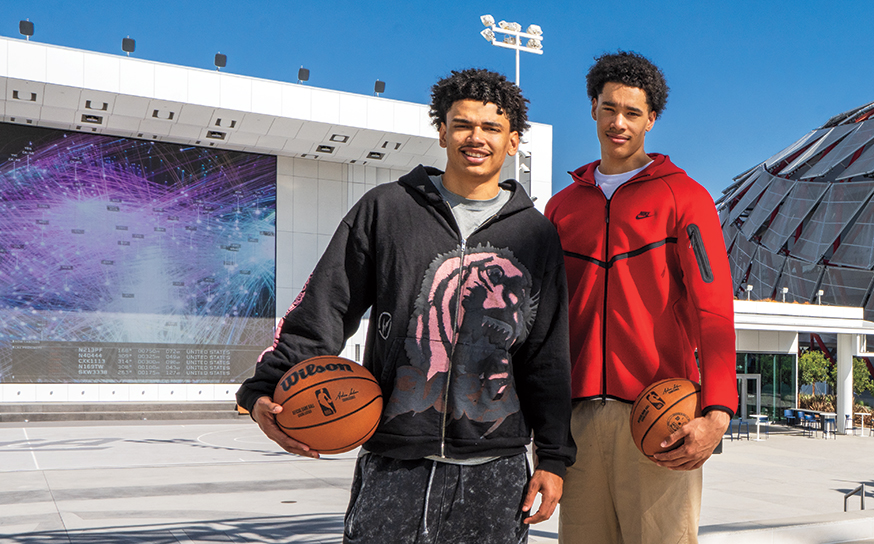Kathy Wunderli shows her doubters a woman can coach a champion baseball team
A mom and lawyer in a league of her own.
- CategoryPeople
- Written byAmber Klinck
- Photographed byNancy Pastor
Kathy Wunderli didn’t grow up playing baseball. So when she got a call from her oldest son’s T-ball league asking if she had any interest in coaching, Kathy felt pretty confident that she wasn’t the right person for the job. “I never thought I would coach,” she says.
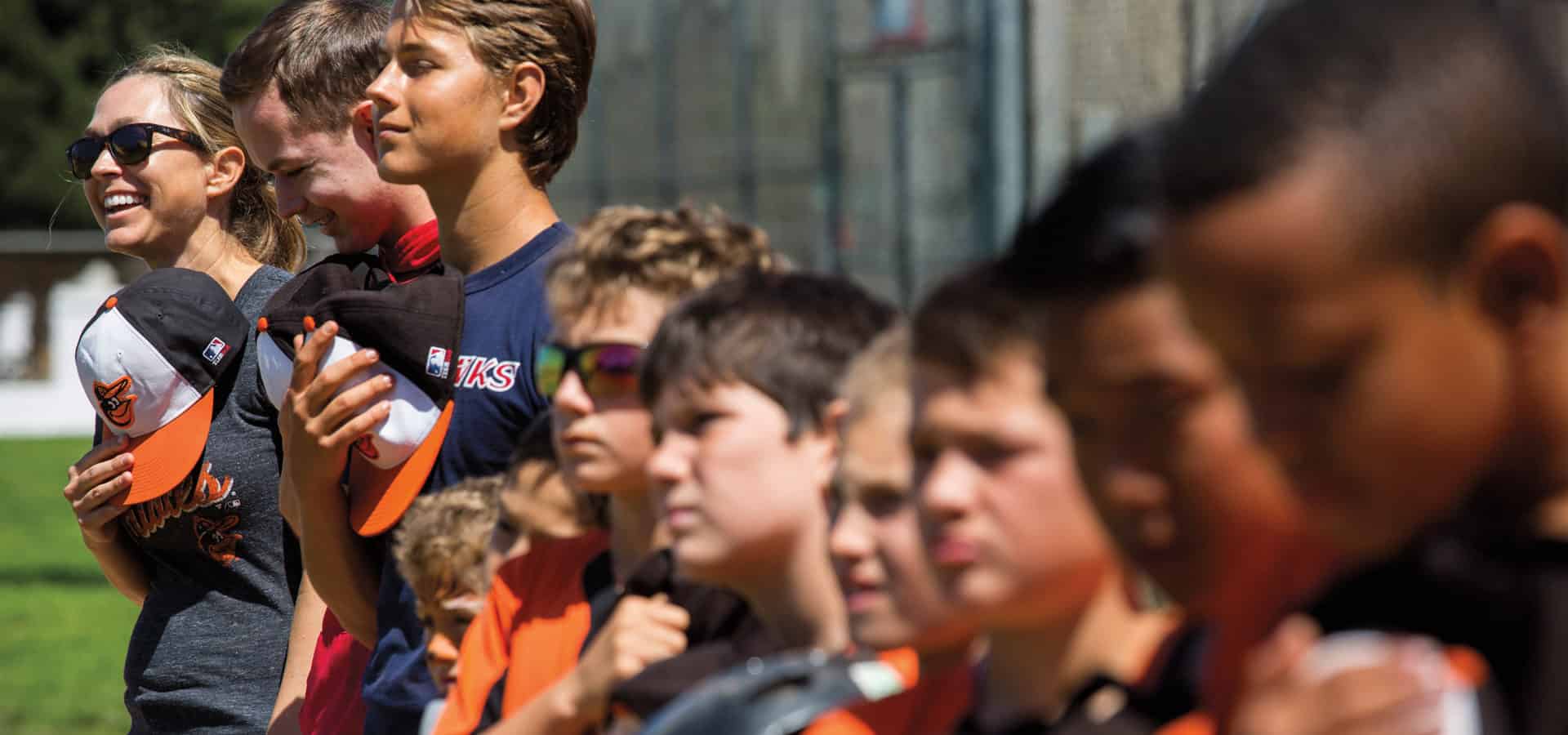
And Mike, Kathy’s husband, had his own hesitations about coaching. “He thought it would be a hard dynamic to coach his own kid,” Kathy notes. “But, of course, that’s what everyone’s thinking. Everyone puts their kids into T-ball, and no one signs up to coach.”
So the league gathered all the parents together, set an equipment bag in front of them and said if no one stepped up to coach, the kids wouldn’t get to play. Kathy’s heart sank.
“I know what I’m doing. My teams win a lot of championships; you have to trust my process.”
“I’m thinking, ‘Oh my gosh, this is what my kid has wanted to do since he was 2 years old.’ And Mike wasn’t there; there were all these dads just standing around,” she says. So Kathy, who at the time was five months pregnant with her third child, grabbed the bag.
New to the game, Kathy’s first year of coaching was filled with a lot of support. “It’s not super-competitive at that age,” she explains. “Most of the parents are understanding that the kids are just out here to have fun and have a good time.”

Kathy’s role was focused largely on managing the team, lineups and coordinating practices. The dads helped a lot on the field. During the next season or two, however, Kathy’s role as coach became considerably more hands-on.
This time pregnant with her fourth child, Kathy wasn’t thrilled with how team practices were being run. And as coach, she was ready to voice that. “I said, ‘This is our agenda for practice, and this is what we’re going to work on,’” she explains. “They all looked at me, and they were like, ‘No.” And I looked at them, and I said, ‘Yes. This is how it’s going to happen.’ That is how I got the nickname Steinbrenner.”
Kathy and Mike met some of their best friends during those first few years coaching baseball. “One of the players on that [first] team has been my son’s best friend since they were 5 years old,” she notes. “They’re going to college together and living in the same dorm.”
Kathy enjoyed coaching the young players, and everyone seemed content to see her in that role. It wouldn’t be long, however, before she would opt to step outside her comfort zone once again. And this time she’d have to do it while facing pushback from some of the parents.
“I figured I could always coach these noncompetitive, lower divisions, right? I think it’s a typical female mentality: I can handle this basic level but don’t want to presume that I can move to the next level,” Kathy explains. “Then one year they were short a AAA coach, and the league called me. They said, ‘Do you think you’d want to manage a team?’ I thought, ‘What a crazy idea—how could I possibly teach this sport I had never played at the competitive level?’ But there was no one else to do it, so I thought, ‘I’m just going to jump in and see what happens.’”
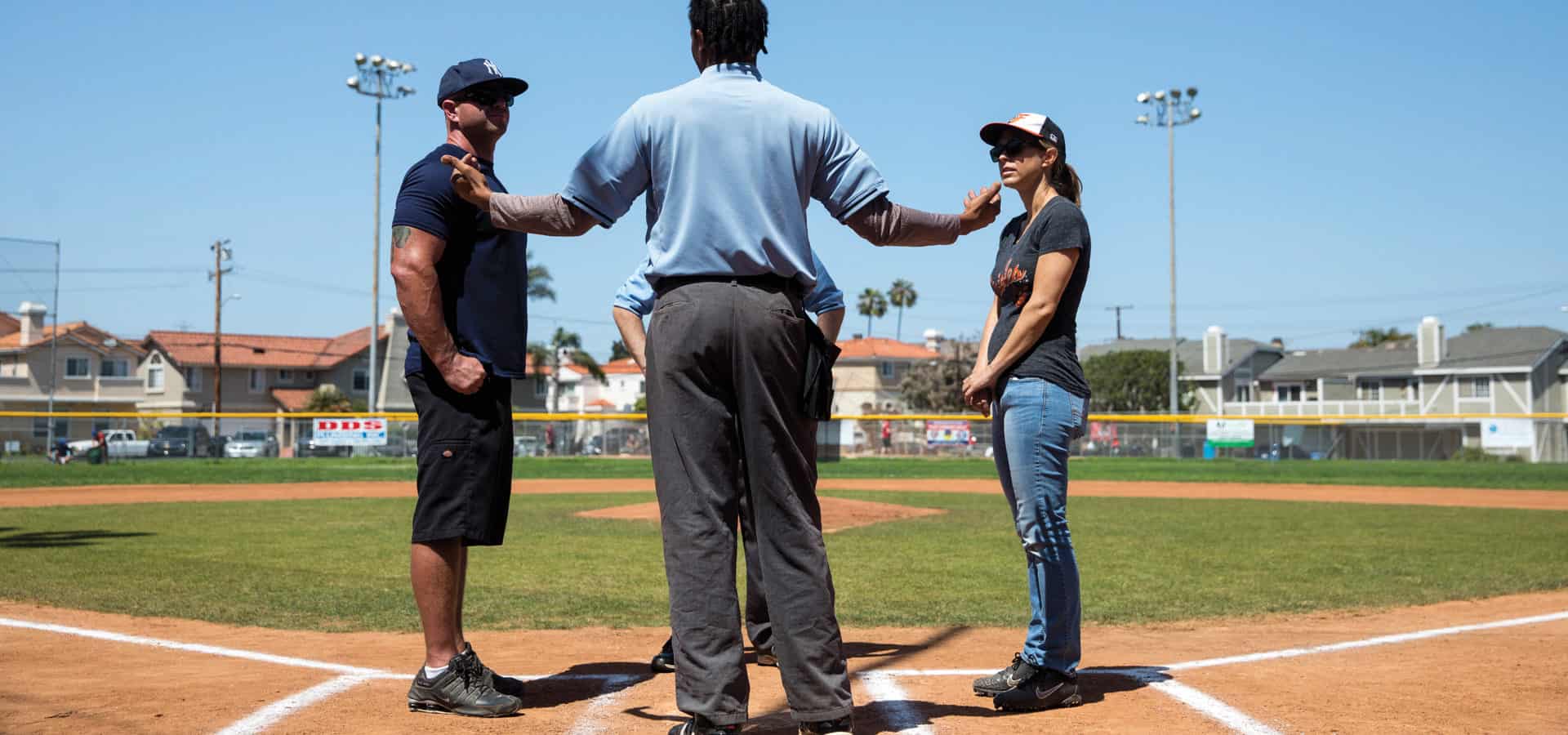
To aid in her transition from coaching lower to higher division baseball, Kathy enlisted the help of her brother (who played high school baseball) and sat in during her sons’ lessons with their private coaches. “I had a lot of people I could learn from,” Kathy says. And the team did well. “We won the championship that year; it was fun.”
Despite her team’s success, however, Kathy started noticing a pushback—not from the kids but from the parents. “I get more resistance,” Kathy says, “especially if they’re new to our league. I have lots of stories of people requesting not to be on my team. Every coach has to deal with that, but there have been certain situations where people have said, ‘Don’t draft my kid, because I don’t think you know enough about baseball.’”
“Women are really reluctant to coach. I’m trying to figure out how to make the Women’s Coaching Initiative successful, but it has to start early enough so that they can feel comfortable with the game. It’s a process.”
Those who know Kathy and know her record stand in her corner. “I’ve always had great people that I coach with that say, ‘Nope, Kathy knows baseball and she knows kids. You want her to draft your kid; you’re lucky if she drafts your kid.’ But if the parents don’t know me, there’s definitely that initial hesitancy, like, ‘Who is this lady running around with her ponytail?’”
It’s been Kathy’s experience that this hesitancy to trust her as a coach doesn’t come from the moms; it comes from the dads. “You can see it: They hover over their kid at practice, they’ll second-guess every decision I make, they’ll try and coach their kid from the stands—actually give them signs. I’ve had to yell out during a game, ‘I have to give the signs—that’s my job,’” she says.
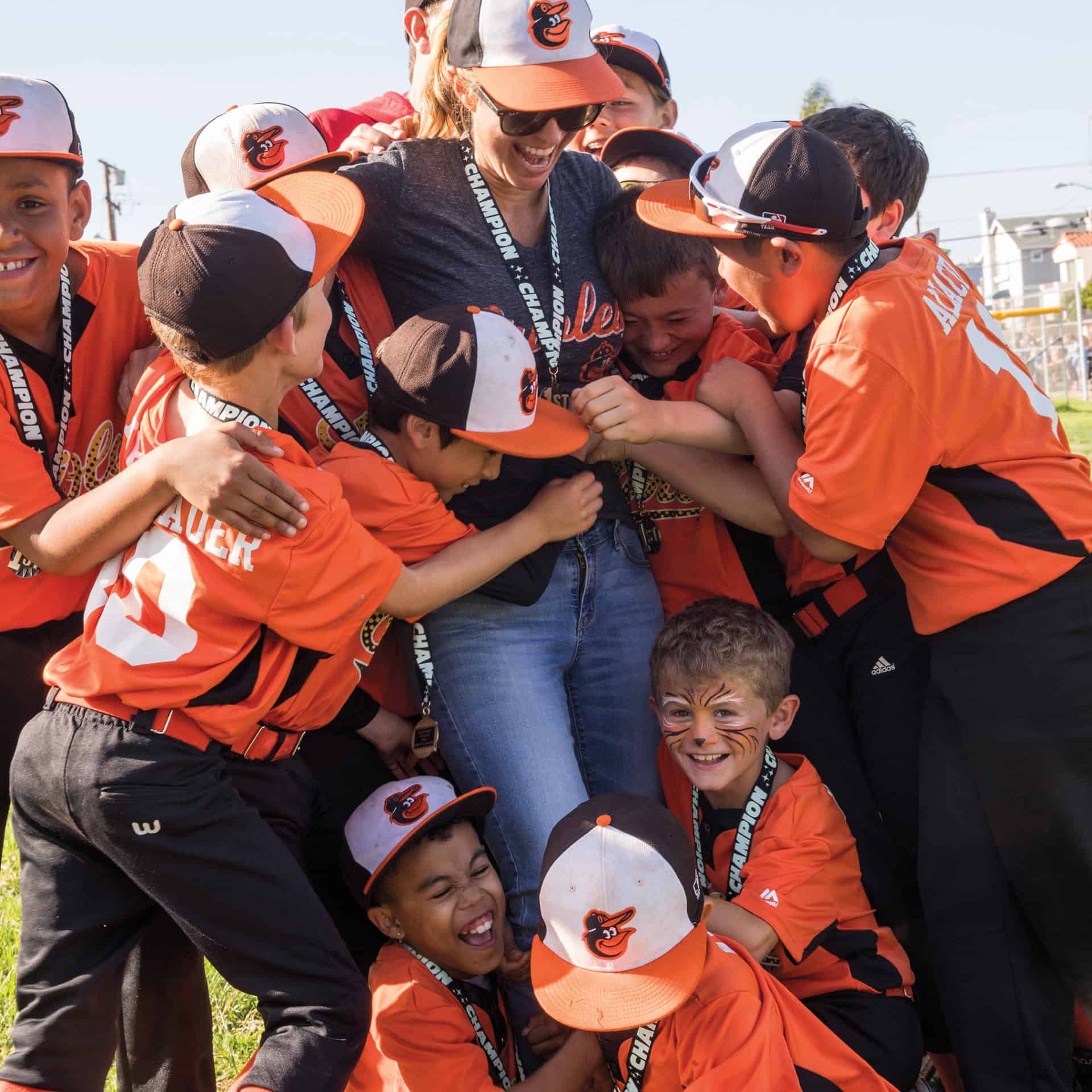
Unfortunately this kind of mistrust over having a female coach can be contagious. “Things always trickle down to the kids,” Kathy shares. “You can always tell when there are negative feelings about a coach at home. There have been seasons where I’ve had to talk to the dads and say, ‘I know what I’m doing. My teams win a lot of championships; you have to trust my process.’ Sometimes that works and sometimes it doesn’t, but I don’t hesitate to have that conversation.”
When asked what she attributes to her years of success as a coach, not surprisingly Kathy is incredibly humble. “My teams have done well. It’s not because I’m such a good coach; it’s because if you focus less on winning and more on developing the players and team comradery, you actually win more.”
Most importantly, the kids on her team are having fun and maybe walking away with a broader outlook. “It’s not that I can completely change their world view,” Kathy says, “but I think that it has to change, to some extent, their perspective. I hope they take away that coaching can be done by anyone who likes the sport and who loves the kids. Maybe they won’t think of it as being a gender-based role.”
That’s a preconceived notion that even Kathy had to overcome. “As a coach I realized that I would always look first to the dads to help at practice,” she explains. “I had to say, ‘OK, well that’s my bias. Maybe I should look to the stands and ask the moms if they can help.’ And so I did that this year. It’s amazing how long it took me to figure that out.”
In January 2017 Kathy announced her Women’s Coaching Initiative. Enlisting the help of other moms, Kathy is working toward increasing the number of female coaches in the league. But it’s a challenge.
“Women are really reluctant to coach,” she notes. “I’m trying to figure out how to make the Women’s Coaching Initiative successful, but it has to start early enough so that they can feel comfortable with the game. It’s a process.”
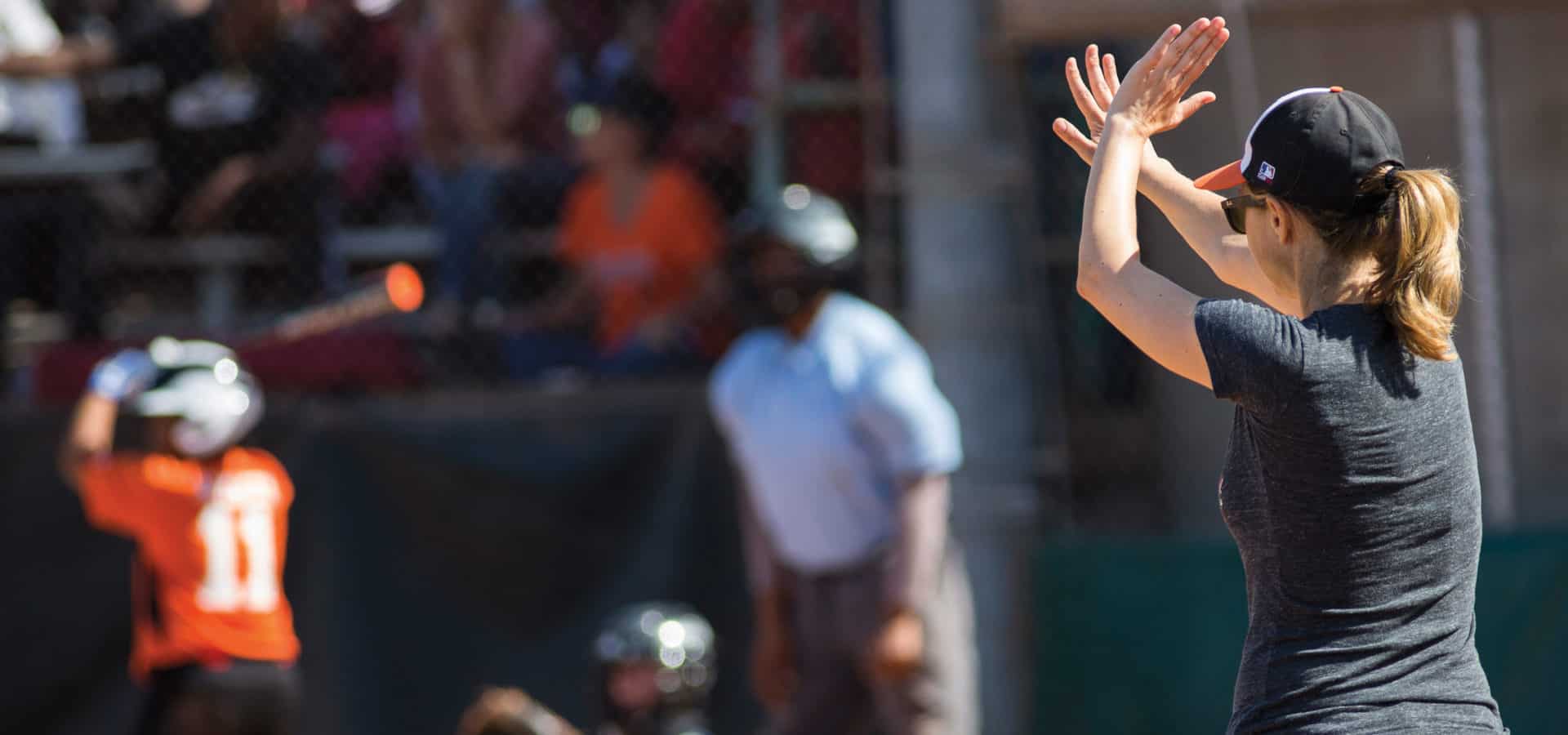
Starting early means encouraging moms to not just watch from the stands but participate with the team. “This year we had games on Mother’s Day,” Kathy says. “My team and a couple others had all moms coaching the bases. They loved it, and the kids had so much fun giving their moms a high-five at the bases.” One of those moms is now coaching a Fall Ball team.
It’s safe to say as a coach and a mother of four boys, Kathy has her hands full. But she’s also incredibly driven as an attorney. “I made partner in my law firm last year,” she notes. “It’s an intense process to get there, but fortunately my firm is very modern and wants to support alternative paths to success, which I think is pretty impressive.”
For Kathy, an alternative path meant reducing her workload for a temporary period of time—allowing her to balance her family and her career. “It’s really not that different than the whole concept of being a female baseball coach,” she says. “There are not a lot of female partners at large law firms … it’s around 20%, even though we make up half of law school classes. What are the factors keeping women from participating and progressing? I think we need to identify those issues and develop solutions. It is not about charity. Youth sports leagues are more successful if they have great coaches, and law firms are more successful if they have a structure in place to promote and retain talented attorneys—regardless of gender.”
This spring Kathy coached the Orioles, her youngest son Blake’s team, with the help of her 15-year-old son, Alex, and her 18-year-old son, Tyler. They just won the league championship. At the same time she coached the Rockies, her 13-year-old son Justin’s team, with her husband and another assistant coach. The Rockies went 21-1-1 and won the league championship and the South Bay area tournament of champions.
“Now I get to coach with my older kids,” Kathy says. “That’s the best part, really—the side effect that I never knew would happen. Here I have these teenage boys, who are notorious for not wanting to talk to their moms … who sit up in their rooms with their headphones on—and they still do that, but we can talk about baseball. We can talk about the lineup. We can talk about the kids. It’s baseball, but there’s a lot that you can learn from baseball.”
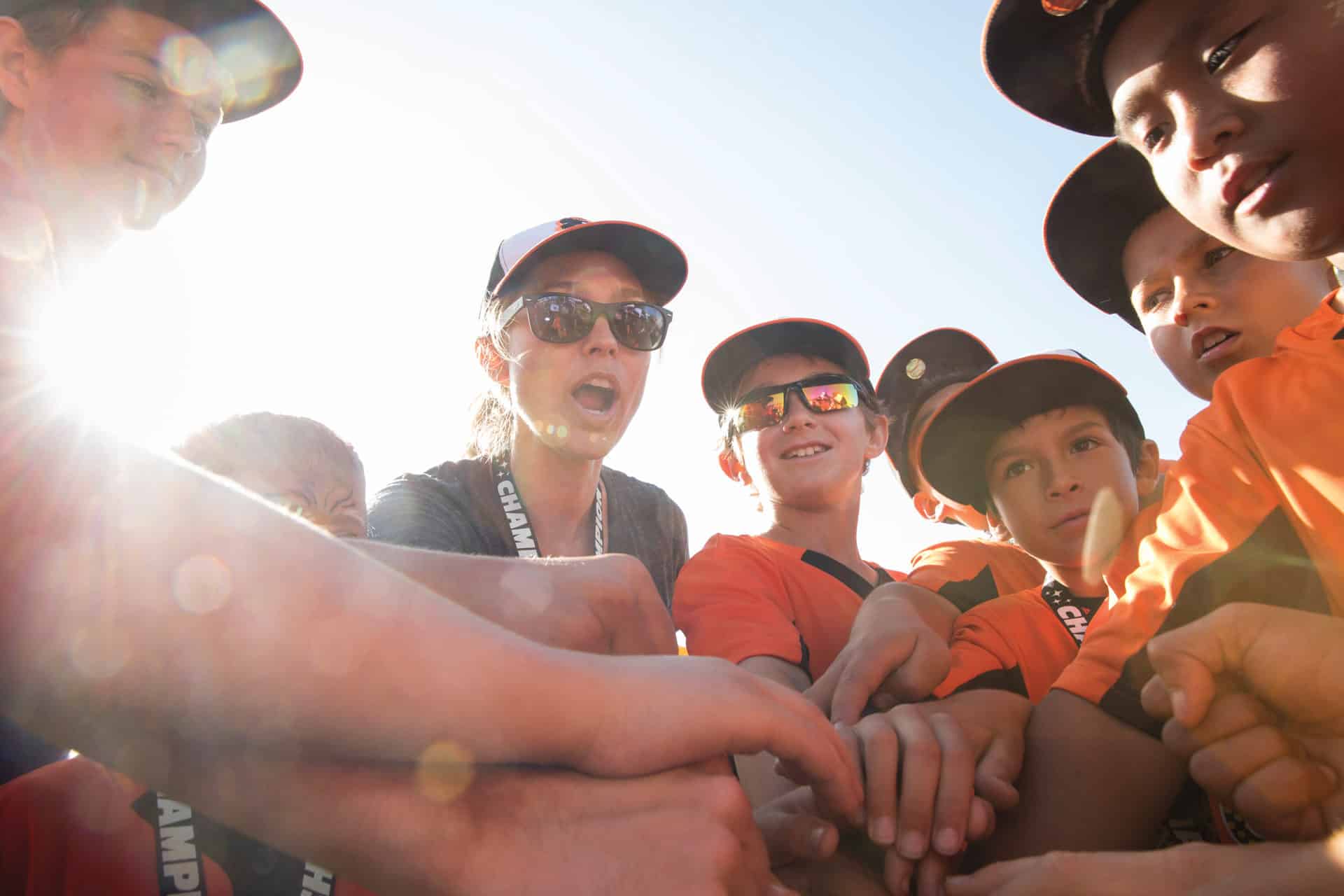
Holiday Wish List 2025
Our annual holiday gift guide highlights the latest trends in fashion, jewelry and home goods available at local retailers for all of your gifting needs. Don’t let the season’s best and brightest pass you by!






